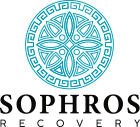If you’re concerned that your relationship with Percocet has become unhealthy, you’re not alone. Percocet is a prescription opioid often used to manage moderate to severe pain, but it also carries a high risk of dependency. Many people begin using Percocet for a legitimate reason, such as recovering from surgery or managing chronic pain, but over time, use can evolve into something harder to control.
Recognizing the signs early is the first step toward healing. Whether you’re exploring options for yourself or someone you care about, understanding Percocet addiction symptoms and enrolling in a compassionate painkiller rehab program can make all the difference.
What is Percocet?
Percocet is a combination of two drugs: oxycodone (an opioid) and acetaminophen (a non-opioid pain reliever). Oxycodone works by changing how your brain responds to pain, while acetaminophen reduces fever and discomfort. While it can be effective for short-term pain management, prolonged use can quickly lead to dependency or addiction.
Because Percocet alters how the brain processes pleasure and reward, many people find themselves chasing the Percocet high feeling—a wave of relaxation, euphoria, and emotional numbness that can become psychologically and physically habit-forming.
Is Percocet an upper or downer?
A common question among those trying to understand their experience is: Is Percocet an upper or downer? Percocet is classified as a downer, or depressant. It slows down the central nervous system, which can cause drowsiness, decreased heart rate, slowed breathing, and an overall sedative effect. Unlike stimulants (commonly known as “uppers”), depressants tend to calm or sedate rather than energize.
Understanding the upper versus downer drugs classification can help you recognize how different substances affect your body and why combining them can be dangerous.
Common symptoms of Percocet addiction
If you’ve been taking Percocet and are starting to question whether it’s become a problem, it’s helpful to look for the following Percocet addiction symptoms:
- Taking more than prescribed: Using higher doses or taking it more often than your doctor instructed.
- Obsessive thoughts: Constantly thinking about when you’ll take your next dose or how to get more.
- Withdrawal symptoms: Feeling anxious, nauseated, sweaty, or irritable when you miss a dose.
- Increased tolerance: Needing more Percocet over time to achieve the same relief or high.
- Mood swings: Noticeable shifts in mood, including irritability, depression, or emotional numbness.
- Social withdrawal: Pulling away from family and friends or avoiding activities you once enjoyed.
- Doctor shopping: Visiting multiple providers to get additional prescriptions.
- Neglecting responsibilities: Struggling to keep up with work, school, or personal commitments.
These symptoms don’t always develop overnight. For many, the shift from occasional use to dependency is slow and difficult to detect—until the consequences become harder to ignore.
How the Percocet high affects your brain
The Percocet high feeling activates the brain’s reward system, flooding it with dopamine and other chemicals that signal pleasure. Over time, your brain can start to rely on the drug to feel normal or emotionally regulated.
As tolerance builds, you may find that the initial high becomes harder to achieve, leading to increased use and riskier behaviors. This is a major reason why opioids like Percocet can be so difficult to quit without support.
Physical and psychological red flags
Some signs of Percocet addiction are visible, while others are internal. Physically, you might notice:
- Frequent drowsiness or “nodding off”
- Constipation or nausea
- Constricted pupils
- Itchy skin or excessive sweating
Emotionally and psychologically, red flags can include:
- Intense cravings
- Irritability or agitation when the drug wears off
- Loss of motivation
- Avoiding conversations about your Percocet use
If any of these symptoms sound familiar, it may be time to seek painkiller addiction treatment.
When to reach out for help
You don’t have to hit rock bottom to ask for help. In fact, the earlier you begin recovery, the more support you’ll have to reverse the effects of dependency and begin healing.
At Sophros Recovery in Jacksonville, we work with clients at every stage of recovery. Whether you’re still unsure if your Percocet use is a problem or you know you’re ready for a change, our team is here to guide you through the next steps with compassion and clarity.
How Sophros Recovery can help
We offer outpatient programs designed to treat the whole person, not just the symptoms of substance use. Our team understands the emotional and physical toll of opioid addiction, and we tailor each care plan to the individual.
Our programs include:
- PHP, IOP, and outpatient treatment, with flexible scheduling including evening sessions
- Therapy-focused care, using evidence-based methods like CBT, DBT, ACT, and trauma-informed support
- MAT options (such as Suboxone) when clinically appropriate
- Family involvement and caregiver guidance
- Veterans-specific care for those who have served
- Alumni and aftercare programs to help you maintain your progress
We also support both 12-step and non-12-step recovery pathways, including SMART Recovery and other alternatives, so you can find what works for you.
Contact Sophros Recovery in Jacksonville today
If you’re starting to see the signs of Percocet dependency in your life, don’t wait to get help. Sophros Recovery in Jacksonville provides a safe, supportive environment where healing begins with understanding. Our experienced clinicians will meet you where you are and guide you through evidence-based care that respects your journey and your goals.
Reach out to Sophros Recovery today at 866.374.0541 or online to learn more about our outpatient programs and start your path toward lasting recovery. You deserve support, healing, and a life beyond Percocet.







